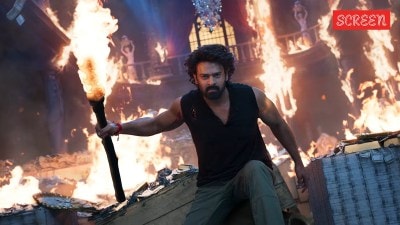Fever pitch
It must have made quite a sight: the 13 directors of the Football Association the absence of the 8216;national8217; prefix is a pointer t...

It must have made quite a sight: the 13 directors of the Football Association the absence of the 8216;national8217; prefix is a pointer to how venerable the institution is, grey-haired and grey-suited, sitting in judgment over three of its employees indulging in the kind of passes they didn8217;t teach you at soccer academies. And the ultimate insult: two of them are foreigners! You can almost hear the tut-tutting, as they say, 8220;It would never have happened had we gone for an English coach.8221; But this scandal has, if anything, rung the Alam on the way English football is run. The most startling revelation of Svengate is not that consenting adults have had affairs with each other, nor even the fact that they all worked in the same organisation. The most distressing aspect is how Mark Palios, Sven Eriksson8217;s boss and the 8220;other man8221; in Faria Alam8217;s life, sought to stab his coach in the back and how he used a colleague to sell the idea to the press. That about sums it up.
Which is sad, because English football 8212; while not approaching the standards of Spain and Italy 8212; is Big Money. The latest annual football finance report of accountants, Deloitte, says it in black and white: England are the biggest earners in European football, and the Premiership, which for most is what English football is all about, generated 2 billion last year as against 1.4 billion of the runners-up, the Italian Serie A. Some of that money comes of course from Roman Abramovich, the Russian oil baron whose takeover of Chelsea has livened up what used to be a two-horse race between Manchester United and Arsenal. More and more, the Premiership attracts top foreign players and not, as it once did, just those looking for a couple of lucrative seasons before retirement. Best of all, it8217;s attracted top coaches, with three proven winners starting new jobs this season: Valencia8217;s Rafa Benitez Liverpool, Porto8217;s Jose Mourinho Chelsea and France8217;s Jacques Santini Tottenham.
In the light of that, it8217;s easy to understand the media8217;s extended coverage of Premiership football. What has also got extended coverage, though, is the private lives of the top players, and the creation of the Celebrity Footballer. It8217;s a vicious cycle: the footballers are young, testosterone-driven and wealthy beyond imagination Celebrity Manager Eriksson, is two out of these three. Their lifestyle provides easy fodder for the media, which brings it to an eager public. Few survive the ride without bruises 8212; mainly to the ego. Because this is a whole new ball game.
- 01
- 02
- 03
- 04
- 05































